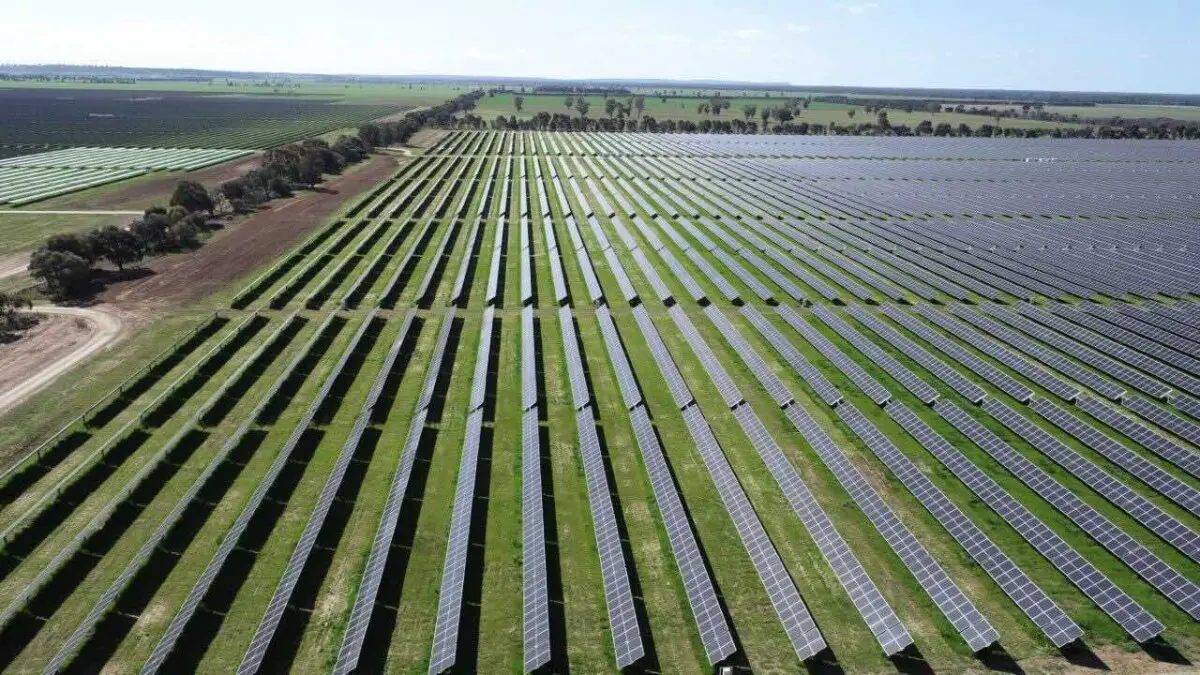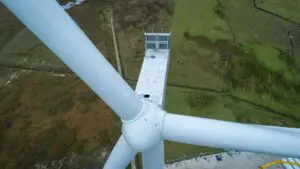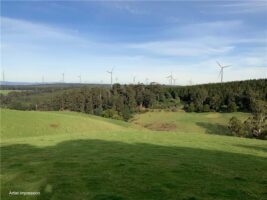The New South Wales Independent Planning Commission has called a public meeting over plans to develop a massive solar farm and big battery in the state’s Central-West Orana region, to ensure local communities can have “their say” on the state significant project.
Acen Australia’s Birriwa Solar and Battery Project proposes to build a 600MW solar farm alongside a battery energy storage system (BESS) of up to 600 MW with two hours of storage capacity about 20km southeast of Dunedoo.
According to the project website, the solar farm and big battery would connect to the Merotherie Energy Hub, one of two grid upgrades EnergyCo is developing to accommodate the up to 4.5GW of new generation capacity expected to be added to the Central-West Orana Renewable Energy Zone (REZ).
But planning approval was handed to the IPC after the project attracted at least 50 submissions objecting to its development. One of the two local councils has also objected to it going ahead.
#IPCTAKEPART a public meeting for the Birriwa Solar Farm will be held on Wednesday 6 June 2024. Register to speak here: https://t.co/tIigrvaXrl pic.twitter.com/JeZMrSWFw0
— Independent Planning Commission NSW (@IPC_NSW) May 21, 2024
“The community will be able to have their say in a public meeting on the Birriwa Solar Farm,” the IPC said in an emailed statement on Tuesday, which also details potential “flexible arrangements [to] ensure as many people as possible have the opportunity to be heard.”
“The key issues identified in the Department’s whole-of-government assessment of the development application include land use compatibility, visual impact, traffic and transport, social impacts and temporary accommodation,” the email says.
The meeting on the huge project comes amid a new warning from the Australian Energy Market Operator that slow progress in the New South Wales shift to firmed renewables could threaten the reliability of supply in the state in the next couple of years.
The main concern in NSW, according to AEMO, is the lack of sufficient energy storage capacity and delays to key transmission upgrades in the state, but the state government has also been criticised for being too slow in providing approvals to new renewable projects.
“First and foremost, we have to make sure that we get projects approved in a timely manor,” Simon Corbell, the head of the Clean Energy Investor’s Group, told the Smart Energy Conference in Sydney in March. “We need to get timely access to the grid and we need to get a timely assessment and approval of projects.”
But getting and maintaining social licence for renewable energy and transmission development also remains a critical issue for the state, with strong criticism of how community engagement has been conducted in the past – particularly for major transmission projects.
According to a report from the NSW department of planning, the Birriwa Solar and Battery Project received 89 unique submissions from the public, 85 of which objected to the project, while four “provided comment.”
The report says around 13% of submissions were from people within 5km of the planned project site, while 52% were from people living between 5km and 100km from the site. A further 35% of submissions were from people living more than 100km from the project, interstate or not specified.
According to the report, the key issues raised in the objections include the potential impact on agricultural land, visual impact, cumulative effect of renewable energy projects in the area, environmental impacts and social impacts, including stress and mental well-being.
The Warrumbungle Shire Council’s objection was based on concerns about the cumulative impact on the region from renewables development in the CWO REZ and concerns over impacts on the local roads.
The IPC says that while it has access to all of the written submissions made to the NSW planning department on the Birriwa project, it is particularly keen to hear the community’s views about the department’s assessment of the key issues raised in objections and how it proposed to address them.
In its final evaluation of the project, the planning department said the project “would not result in any significant in the overall agricultural productivity of the region,” and had addressed other concerns raised in submissions with planning changes and recommended conditions of consent.
“Importantly, the project would assist in transitioning the electricity sector from coal and gas-fired power stations to low-emissions sources,” it adds.
“The Department considers [the project] achieves an appropriate balance between maximising the efficiency of solar resource development and minimising the potential impact on surrounding land users and the environment.”
The public meeting on the Birriwa Solar Farm will be held at the Dunedoo Jubilee Memorial Hall on Wednesday 5 June, from 10:00am.
Community members or other stakeholders can address the public meeting, as long as they pre-register using the provided online form.
The Commission is also inviting the public to lodge written submissions, which will be accepted via the website until close of business on Friday June 14.








